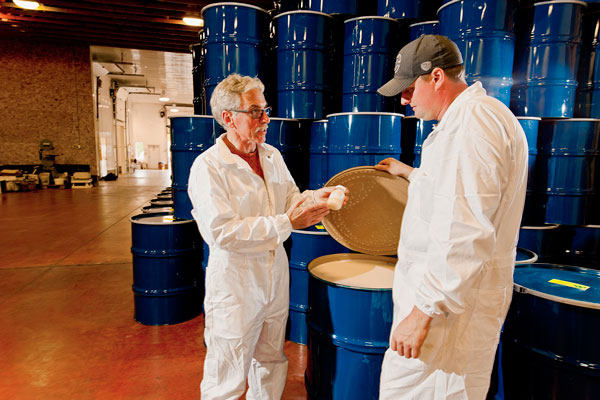
“The opportunity for the cheaters is massive.”
– Murray Hannigan
Murray Hannigan has had many sleepless nights over the past few years questioning how he can sustain his honey business.
Hannigan Honey based in Shellbrook sells pure honey, but some honey on the market is being labelled as pure when it’s actually diluted with sugary syrups.
“You wonder ‘How are we going to make ends meet?’ Honey bees don’t produce peanut butter, they don’t produce jam. They don’t make any alternative products that suddenly we could start marketing.”
A Canadian Food Inspection Agency (CFIA) report said this is a food fraud—claiming to be authentic honey at a fraction of the price and drawing consumers away from legitimate producers.
The CFIA tested 240 samples of honey across the country from June to September of 2018.
It found that 52 of them, or 21.7 per cent, were diluted. The unsatisfactory results were all from imported honey from outside of Canada, whereas domestic products were all found to be pure.
Hannigan said pure honey currently costs between $1.70 and $1.90 CAD per pound, whereas sugar syrups are between 25 and 35 cents a pound.
“The opportunity for the cheaters is massive,” he said.
He said he had to cut down on labour, Hannigan Honey’s largest cost. They not only have employees within the country, but also foreign workers.
Hannigan said the taste of pure and diluted honey isn’t much different, especially when people aren’t consuming it alone. He said it’s easy to disguise fake honey when it’s used as an ingredient, such as in cereal or granola bars.
He added the sugar syrups make the product less healthy.
“From a health perspective, there’s limited damage, but we do know that honey is the healthiest sweetener available. When you’re diluting it with less healthy sweeteners like high fructose corn syrup, for example, it’s not as good for us as humans,” said Hannigan.
Hannigan Honey operates about 5,400 hives across 135 locations of farmland. Joining the Saskatchewan Trade and Export Partnership opened doors to selling honey in Japan, which is about 85 per cent of their market. Ten per cent is sold in Canada and the United States and five per cent to China.
Hannigan’s advice to consumers is to buy honey being made within the country and that’s marked with a Bee Maid label. Bee Maid is a cooperative of Canadian beekeepers who sell pure honey.
He also said if the honey is significantly cheaper than others, it’s likely not authentic.
“Our biggest problem is that Canada actually is a net exporter of honey, like we produce quite a bit more honey than what Canadians typically consume,” said Hannigan, explaining that other countries are now bringing in cheap, diluted honey and authentic producers are losing their market share. He said this is particularly happening in the United States.
“Some of the problem is that big money and big business, especially in big food business, they worry more about the bottom line than they do about the ethics of sourcing authentic products.”

